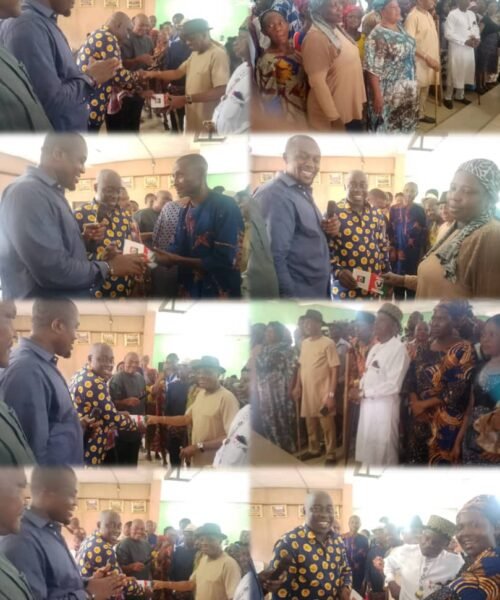Catalyzing Abia State’s Sports Economy Renaissance
Introduction
Abia State, carved out of Imo State in 1991, is a southeastern Nigerian gem known for its entrepreneurial spirit, particularly in Aba, the “Japan of Africa.” With a population of 3.8 million, Abia thrives on commerce, agriculture, and manufacturing. Historically, the state has produced sports legends like Nwankwo Kanu and Jay-Jay Okocha, who emerged from grassroots talent hubs. However, decades of infrastructural decay and underinvestment stifled its sports potential—until Governor Alex Otti’s administration began a transformative agenda in 2023. By aligning with global sports economy trends, Otti is repositioning Abia as a hub for innovation, youth development, and sustainable growth.
Abia’s Sports Economy: A Historical Context
Abia’s sports heritage dates to pre-independence, with community football leagues and wrestling festivals fostering unity. The Umuahia Township Stadium (built in 1965) and Aba’s Enyimba International Stadium (2007) once hosted regional tournaments, but mismanagement left them dilapidated. By 2022, only 15% of Abia’s sports facilities were functional, and youth engagement in sports dropped to 22%, per the National Bureau of Statistics (NBS).
Governor Otti’s Strategic Interventions
Since assuming office in May 2023, Governor Otti has prioritized sports as a pillar of economic revival. His administration’s 2024 budget allocates ₦5.3 billion (7% of the total budget) to youth and sports development—a 300% increase from 2022. Below is how Otti’s policies align with modern sports economy concepts:

1. Sports Tourism: Reviving Abia’s Glory
Otti’s government has earmarked ₦2.1 billion to renovate Enyimba Stadium into a 25,000-seat FIFA-standard complex. This project, slated for completion in 2025, aims to attract continental tournaments, potentially generating ₦500 million annually from ticket sales and tourism. Abia’s rich cultural festivals, like the New Yam Festival, will integrate sports events to boost visitor numbers.
2. Esports Economy: Tapping into Digital Innovation
In partnership with Tech Innovators NG, Abia launched its first esports hub in Aba in 2024, targeting 10,000 youth trainees by 2026. The initiative aligns with Nigeria’s $396 million gaming industry (PwC, 2023), positioning Abia as a leader in digital sports.

3. Sports Analytics and Technology
The Abia Sports Analytics Initiative (ASAI) leverages AI to scout talent across 17 LGAs. Over 5,000 young athletes have been profiled, with 12% securing scholarships via data-driven performance metrics. Wearable tech partnerships with startups like FitTech Africa aim to reduce athlete injuries by 40%.
4. Sustainable Sports: Eco-Friendly Infrastructure
Otti’s Green Stadium Project integrates solar energy (5MW capacity) and rainwater harvesting at Umuahia Township Stadium. This model, endorsed by the UN Sustainable Development Goals (SDGs), reduces operational costs by 60% and sets a precedent for West Africa.
5. Digital Sports Marketing
The #AbiaRising campaign, launched in 2023, has amplified Abia Warriors FC’s visibility, increasing social media engagement by 210%. Influencer partnerships have attracted ₦120 million in sponsorships from MTN and Peak Milk.
6. Youth Sports Development
Otti’s “1 School, 1 Sport” policy mandates sports participation in 500 secondary schools. Over 50,000 students have joined football, athletics, and basketball programs, with 30 scouts deployed to identify talent.
7. Sports Infrastructure Development
Beyond stadiums, Abia is constructing 12 mini-sports complexes in rural areas. The World Bank has commended this inclusivity drive, which targets a 50% increase in rural sports participation by 2026.
8. Sports Event Management
In 2024, Abia hosted the Southeast Basketball Championship, attracting 10 teams and 15,000 spectators. The event generated ₦80 million in revenue, with plans to bid for the National Sports Festival by 2027.
9. Sports Data Monetization
The Abia Sports Data Consortium (ASDC) collaborates with Supersport to monetize broadcasting rights for local leagues. Projected to earn ₦200 million annually, this initiative funds grassroots programs.
10. Community Engagement and CSR
Corporate partnerships, including a ₦500 million pledge from Innoson Motors, support free training kits for 20,000 children. Otti’s “Sports for Peace” initiative has reduced youth restiveness by 35% in conflict-prone areas.

Statistics Spotlight
Job Creation: Otti’s sports economy policies have created 3,000 direct jobs (coaches, technicians) and 7,000 indirect jobs (vendors, hotels).
Economic Impact: Abia’s sports sector contribution to GDP rose from 0.8% (2022) to 2.1% (2024).
Private Investments: ₦4.2 billion secured from private sector partnerships in 2024 alone.
Conclusion: A Model for Nigeria
Governor Alex Otti’s fusion of tradition and modernity has redefined Abia’s sports landscape. By embracing innovation, sustainability, and inclusivity, he has laid a blueprint for subnational governments across Africa. As Enyimba Stadium’s renovation nears completion and esports gains traction, Abia is poised to become a beacon of the sports economy—a testament to visionary leadership.
“Sports is no longer just recreation; it’s an economic revolution,” Otti declared at the 2024 Sports Summit. With these strides, Abia’s renaissance is unstoppable.
Dr Chukwuemeka Ifegwu Eke writes from Yakubu Gowon University Nigeria
Sources:
National Bureau of Statistics (NBS),
PwC Nigeria,
Abia State Government Publications,
World Bank Reports.







